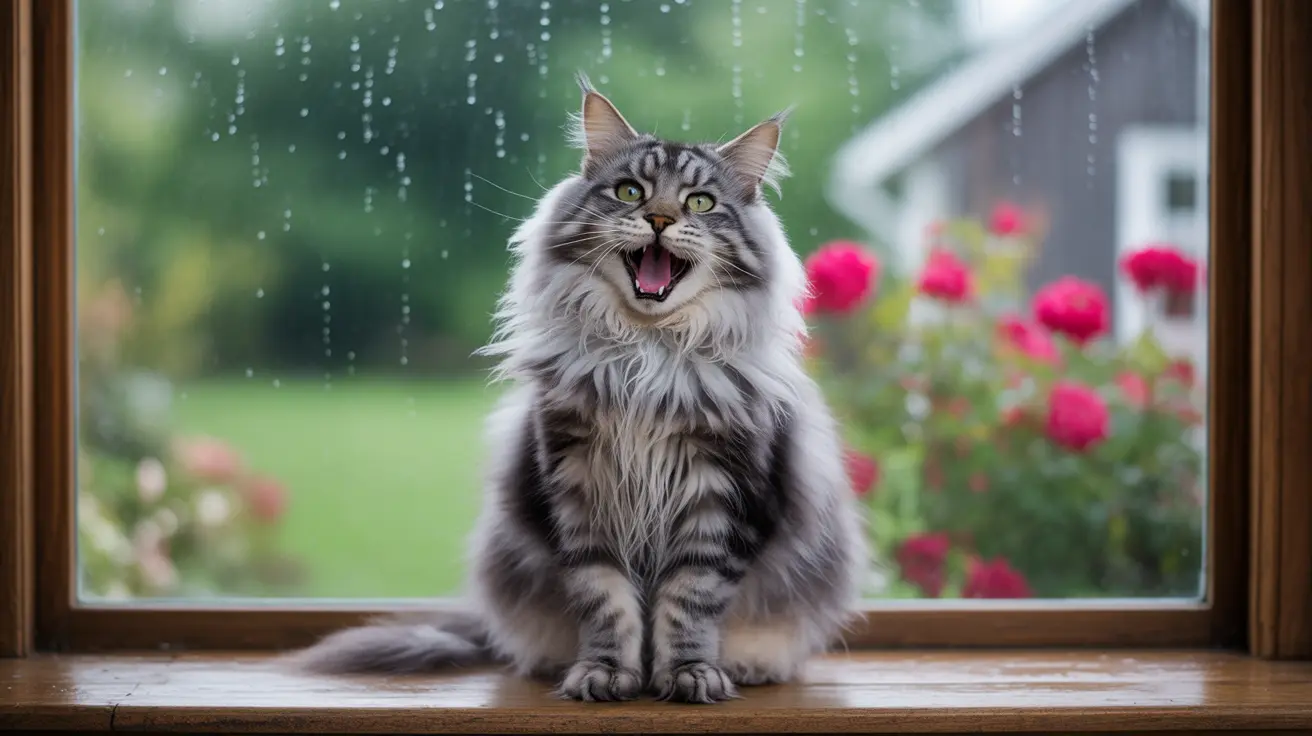What Does Cat Yowling Mean?
Cat yowling is a distinctive, prolonged vocalization that sounds dramatically different from regular meowing. This loud, often mournful sound serves as a crucial form of feline communication, potentially signaling various emotional, physical, or behavioral needs that require attention from pet owners.
Understanding your cat's yowling meaning is essential for maintaining their health and wellbeing. Unlike regular meows, which cats primarily use to communicate with humans, yowling often indicates more urgent or instinctive needs that shouldn't be ignored.
Common Causes of Cat Yowling
Medical Issues and Pain
When cats experience physical discomfort or illness, yowling often serves as their way of communicating distress. Common medical causes include:
- Hyperthyroidism
- Kidney disease
- Arthritis
- Dental problems
- Urinary tract infections
Senior cats are particularly prone to yowling due to cognitive dysfunction syndrome (cat dementia), which can cause confusion and disorientation, especially at night.
Mating and Territorial Behavior
Unspayed females and unneutered males frequently yowl during breeding season. Female cats in heat produce distinct yowling sounds to attract mates, while male cats respond with their own vocalizations. This behavior can be particularly intense and persistent until the breeding drive is satisfied.
Stress and Anxiety
Environmental changes often trigger stress-related yowling in cats. Common stressors include:
- Moving to a new home
- Introduction of new pets or family members
- Changes in routine
- Separation anxiety
- Unfamiliar visitors or sounds
How to Address Cat Yowling
Veterinary Assessment
If your cat's yowling is new or increased, schedule a veterinary examination to rule out medical causes. This is particularly important for senior cats or those showing additional behavioral changes.
Environmental Enrichment
Provide mental and physical stimulation to prevent boredom-related yowling:
- Interactive toys and puzzle feeders
- Regular play sessions
- Climbing spaces and scratching posts
- Window perches for outdoor viewing
- Consistent daily routines
Stress Reduction
Create a calming environment by:
- Maintaining regular feeding and play schedules
- Providing quiet retreat spaces
- Using pheromone diffusers
- Minimizing household changes when possible
- Ensuring multiple resource stations in multi-cat homes
Frequently Asked Questions
What does it mean when my cat is yowling loudly and persistently?
Persistent yowling can indicate several issues, including medical problems, mating behavior, stress, or attention-seeking. If the behavior is new or unusual, consult your veterinarian to rule out health concerns.
Could my cat's yowling be a sign of pain or illness?
Yes, yowling can be a significant indicator of pain or illness. Common medical causes include thyroid problems, arthritis, dental disease, or urinary tract issues. Any sudden increase in yowling warrants veterinary attention.
Why do unspayed or unneutered cats yowl more during mating season?
Female cats in heat yowl to attract mates, while male cats respond with loud vocalizations to signal their availability. This is natural breeding behavior that can be eliminated through spaying or neutering.
How can I tell if my cat's yowling is caused by stress or boredom?
Stress-related yowling often occurs following environmental changes or during specific situations. Boredom-related yowling typically happens when cats lack sufficient mental and physical stimulation, especially in indoor-only cats.
What steps can I take to reduce my cat's excessive yowling at home?
To reduce excessive yowling, ensure regular veterinary check-ups, provide environmental enrichment, maintain consistent routines, address potential stressors, and consider spaying/neutering if not already done. For senior cats, discuss cognitive support options with your veterinarian.
Conclusion
Understanding cat yowling meaning is crucial for responsible pet ownership. While some yowling is normal, particularly in certain breeds or situations, persistent or unusual vocalizations should never be ignored. By identifying the underlying cause and taking appropriate action, you can help ensure your cat's health and happiness while maintaining household harmony.






